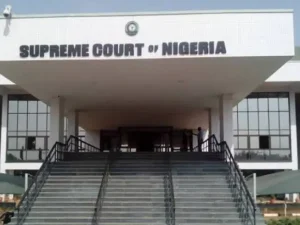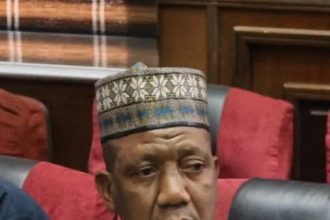Today, the Supreme Court is set to deliver a critical judgment on the legality of the Economic and Financial Crimes Commission (EFCC), following a legal challenge initiated by 19 state governments. The states question the constitutional foundation of the laws establishing the EFCC, arguing that the anti-graft agency’s creation did not comply with constitutional requirements.
The lawsuit, led by Kogi State and supported by states such as Ondo, Edo, and Oyo, hinges on a key constitutional argument. It cites a previous Supreme Court decision in Dr. Joseph Nwobike Vs. Federal Republic of Nigeria, which highlighted that the EFCC Establishment Act was rooted in a United Nations Convention against corruption.
The states contend that the 2004 enactment of this law did not follow Section 12 of the 1999 Constitution, as amended, which requires international conventions to be ratified by a majority of state assemblies before they can be domesticated into Nigerian law.

Suspense as S’Court rules on 16 govs’ suit against EFCC
The plaintiffs argue that because this ratification process was not followed, the EFCC’s actions in states that did not endorse the convention are unconstitutional and, therefore, illegal. This argument, if upheld by the court, could significantly impact the EFCC’s jurisdiction and operations across Nigeria.
A seven-member panel of justices, led by Justice Uwani Abba-Aji, is presiding over the case, with stakeholders across the nation closely watching the outcome.
The EFCC has defended its position, dismissing the lawsuit as an attempt by those affected by its investigations to undermine the agency’s efforts in fighting corruption. Wilson Uwujaren, the EFCC’s Director of Public Affairs, argued that the agency is essential for maintaining transparency and accountability in Nigeria. Speaking on Channels Television’s The Morning Brief, Uwujaren emphasized the crucial role of the EFCC in tackling the nation’s corruption problem.
“We are shocked by what is happening. Nigerians should see through this shenanigan and oppose it because I don’t see how this country can survive without the EFCC, given the kind of corruption problem that we have. Nigeria cannot do without the EFCC,” he said.

He expressed concerns that the states challenging the EFCC’s framework are motivated by a desire to escape scrutiny, adding, “What you see playing out is simply people who are feeling the heat of the work of the EFCC and who want to derail what is going on within the EFCC. They see the EFCC as a threat.”
Uwujaren suggested that the call for a restructuring of the EFCC was aimed at weakening its fight against corruption, warning that those advocating for this change “simply want to derail the fight against corruption because they don’t want accountability in their domains.”
As the Supreme Court prepares to deliver its verdict, the outcome could redefine the future of anti-corruption efforts in Nigeria and set a precedent for the relationship between federal agencies and state governments.









